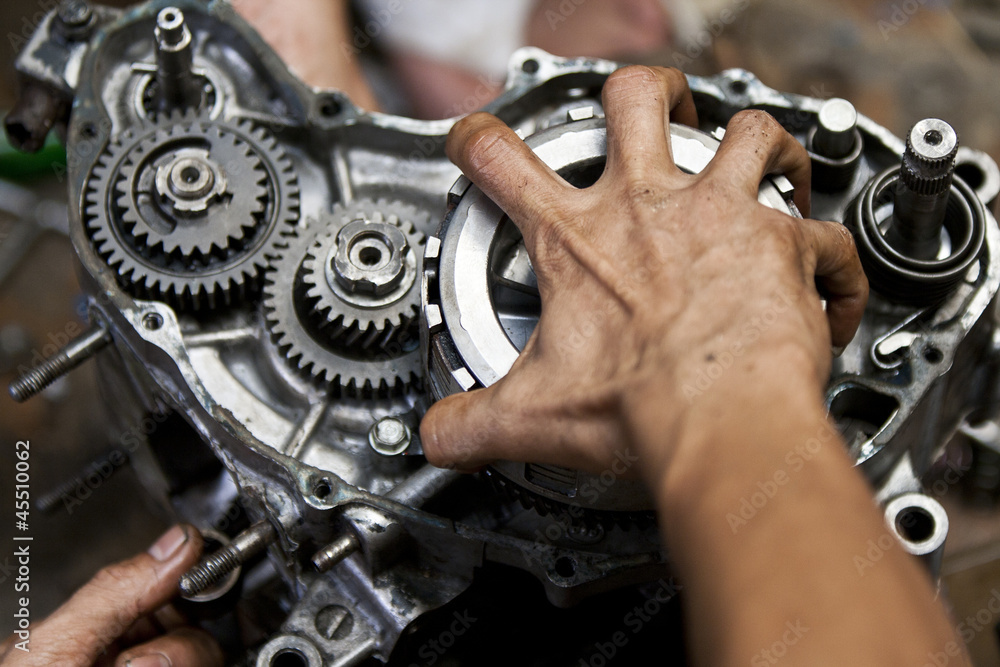The Rise and Importance of Bike Repairing Workshops in the Automobile Service Industry
As the demand for personal transportation continues to grow, two-wheelers, particularly motorcycles, have become a dominant mode of transport worldwide. Motorcycles offer an economical, fuel-efficient, and compact alternative to cars, making them especially popular in densely populated urban areas. This surge in motorcycle use has paved the way for the growth of bike repairing workshops, a crucial part of the broader automobile service and repair industry.
In this blog, we will explore the role of bike repairing workshops, the services they offer, the opportunities for growth, and how they align with the evolving landscape of the automobile industry.
Why Motorcycle Repairing Workshops Matter
Motorcycles are a popular choice for transportation due to their affordability, ease of maintenance, and ability to navigate through traffic swiftly. As with any other vehicle, however, motorcycles require regular maintenance, repair, and service to ensure safe and smooth operation. Bike repair workshops play a critical role in providing these services, and they often cater to a wide demographic of customers, from daily commuters to enthusiasts with high-performance bikes.
Key Reasons Bike Repairing Workshops are Essential
Growing Motorcycle Ownership: The global rise in motorcycle sales, particularly in developing countries, is driving the demand for repair and maintenance services. Workshops are becoming increasingly vital as they cater to a massive number of motorcycle owners.
Increased Urbanization: As more people move to cities and adopt motorcycles to deal with congestion, the need for workshops that specialize in bike repair is increasing, especially in metropolitan areas.
Safety: Regular servicing helps prevent breakdowns and accidents, ensuring that motorcycles are always roadworthy. Workshops help reduce road accidents by identifying potential hazards through Key Services Offered by Bike Repairing Workshops
Bike repair workshops provide a wide range of services to address the diverse needs of motorcycle owners. These services can range from basic maintenance tasks to more complex repairs and customizations. Below are some of the most common services offered:
- Regular Maintenance
Regular maintenance is essential to ensure the longevity of motorcycles and prevent major breakdowns. Workshops typically offer:
Oil Changes: Routine oil changes are necessary to keep the engine lubricated and functioning efficiently. Workshops offer different types of oils depending on the make and model of the bike.
Brake and Clutch Maintenance: Maintaining the braking system is crucial for safety. Brake pad replacements, hydraulic fluid checks, and clutch adjustments are common services.
Tire Services: Proper tire care, including rotation, inflation, and alignment, ensures better handling and longer tire life. Workshops often provide tire repair, replacement, and balancing services.
Chain and Sprocket Maintenance: Motorcycle chains and sprockets require regular lubrication and tension adjustments to avoid wear and tear. This is a critical service offered by workshops.
- Engine Repair and Tuning
The engine is the heart of any motorcycle, and over time, components can wear down or malfunction. Workshops offer engine repair and tuning services, including:

Cylinder and Piston Repair: Worn-out pistons and cylinders can lead to performance issues. Workshops inspect these components and replace them if necessary.
Carburetor and Fuel Injector Cleaning: Proper fuel flow is vital for optimal engine performance. Cleaning or replacing clogged carburetors or injectors is a key service.
Engine Diagnostics: Many modern workshops use advanced diagnostic tools to identify issues within the engine’s electrical or mechanical systems.
- Electrical System Repairs
As motorcycles become more technologically advanced, electrical systems have become more intricate. Battery Testing and Replacement: Batteries need regular checks to ensure they are holding a charge properly. Many workshops offer free battery testing and replacement services.
Lighting and Wiring Repairs: Malfunctioning lights or wiring can lead to safety issues, so workshops frequently repair or replace faulty lighting and wiring systems. - Suspension and Frame Repair
Motorcycle suspension systems, which include shocks and forks, play an essential role in handling and comfort. Workshops offer:
Fork Seal Replacement: Over time, fork seals can wear out and leak fluid, affecting the bike’s handling. Workshops replace these seals to restore smooth handling.
Shock Absorber Repair: A damaged shock absorber can cause an uncomfortable ride and reduce control. Repairing or replacing them ensures optimal performance.
- Customization and Upgrades
For motorcycle enthusiasts, customization and performance upgrades are popular services. Workshops often provide:
Exhaust System Upgrades: Installing a custom exhaust system can enhance performance and improve the bike’s sound. Workshops offer a range of aftermarket options.
Handlebar and Seat Modifications: Some riders opt for ergonomic upgrades, such as custom handlebars or seats, to improve comfort on long rides.
Performance Tuning: For racing or high-performance bikes, workshops offer tuning services that optimize engine output, throttle response, and overall performance.
Challenges and Opportunities for Growth in Bike Repairing Workshops
The bike repair industry is not without its challenges, but these challenges present opportunities for growth and innovation. Below are some of the key trends and challenges facing the industry, along with strategies workshops can adopt to remain competitive:
- Increasing Competition
As motorcycles grow in popularity, more repair workshops are opening up, leading to stiffer competition. To stand out, workshops
- Importance of Oil

Routine oil changes are necessary to keep the engine lubricated and functioning efficiently. Workshops offer different types of oils depending on the make and model of the bike.
Brake and Clutch Maintenance: Maintaining the braking system is crucial for safety. Brake pad replacements, hydraulic fluid checks, and clutch adjustments are common services.
Tire Services: Proper tire care, including rotation, inflation, and alignment, ensures better handling and longer tire life. Workshops often provide tire repair, replacement, and balancing services.
Chain and Sprocket Maintenance: Motorcycle chains and sprockets require regular lubrication and tension adjustments to avoid wear and tear. This is a critical service offered by workshops.
- Engine Repair and Tuning
The engine is the heart of any motorcycle, and over time, components can wear down or malfunction. Workshops offer engine repair and tuning services, including:
Cylinder and Piston Repair: Worn-out pistons and cylinders can lead to performance issues. Workshops inspect these components and replace them if necessary.
Carburetor and Fuel Injector Cleaning: Proper fuel flow is vital for optimal engine performance. Cleaning or replacing clogged carburetors or injectors is a key service.
Engine Diagnostics: Many modern workshops use advanced diagnostic tools to identify issues within the engine’s electrical or mechanical systems.
